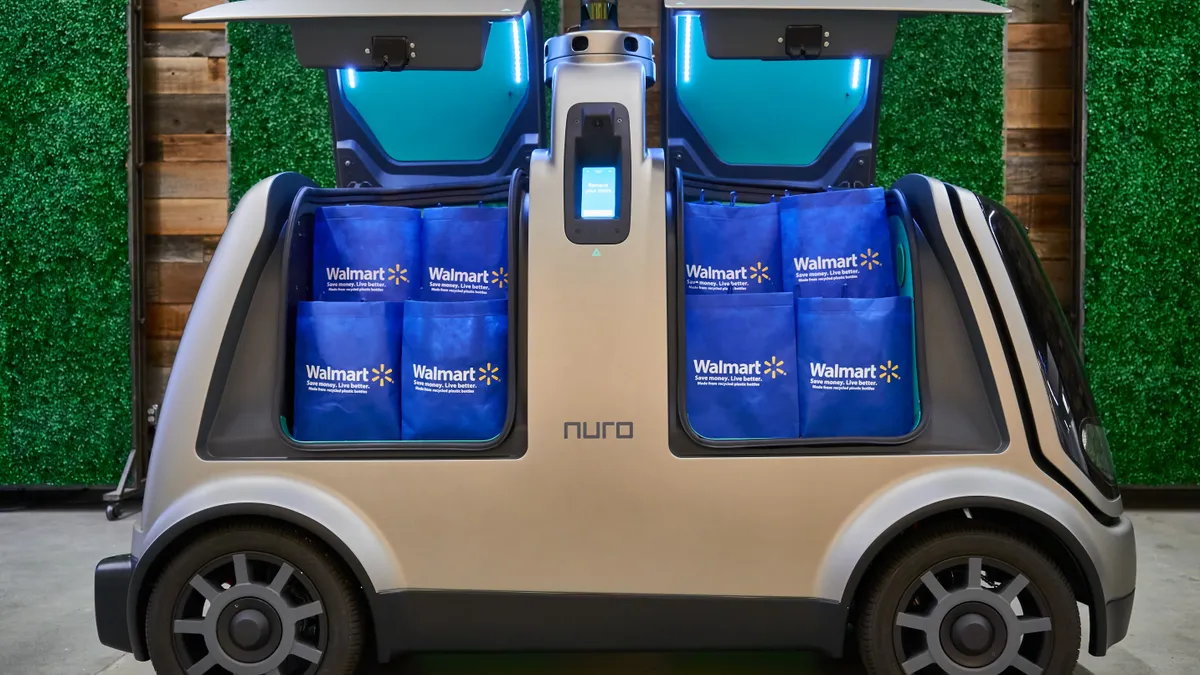Dive Brief:
- Walmart has partnered with robotics company Nuro to bring autonomous grocery delivery to Houston-based customers, according to a press release.
- Over the next few months, Nuro delivery will be made available to Walmart shoppers in Houston who have opted into the service. It will expand to the general public later in 2020.
- The service will use Nuro’s R2 driverless vehicles, which are driverless and carry no passengers, along with autonomous Toyota Priuses powered by Nuro’s technology. The cars will deliver a full assortment of groceries, from fresh produce to pantry products.
Dive Insight:
Walmart and Nuro are tiptoeing their way into this latest driverless delivery partnership by testing the service with a group of customer volunteers. In a blog post, Nuro said it plans to use the data gathered from this first round of shoppers to hone a broader rollout in Houston.
"Through the pilot, we’ll gain insights that will enable us to further develop and refine our service, while helping Walmart create the best end-to-end customer experiences," the company wrote.
Walmart clearly sees potential in driverless delivery to slash costs and boost e-commerce efficiency. Prior to its partnership with Nuro in Houston, the retailer teamed up with Ford in Miami-Dade County and Udelv in Arizona to test self-driving technology, and initiated a service with Waymo that transports customers to and from grocery stores in the Phoenix area via autonomous vehicle. It also partnered with autonomous vehicle company Gatik in July to transport customer orders between two Walmart stores in Bentonville, Arkansas.
Nuro is quite familiar with navigating the Houston market. Kroger launched a driverless test with the company in Houston earlier this year and with pizza chain Domino’s followed suit shortly after. The industry should see more of the technology company in the coming years as it uses the $940 million financing it recently raised to expand to new cities, form new partnerships and scale its fleet.
Autonomous grocery delivery is still in its early stages but as more big-name retailers like Walmart and Kroger stress-test the technology, it should see wider rollout in the years ahead. Companies like Nuro and Udelv promise to combat last mile costs and efficiently reach customers that don’t live in close proximity to stores. However, states and cities are still working through regulations, and consumers have expressed concerns over driverless technology.
Walmart now offers online grocery pickup at more than 3,000 stores and delivery from around 1,600 locations. These services have helped it attract busy shoppers that want its low-cost groceries but don’t want to meander through crowded aisles.













